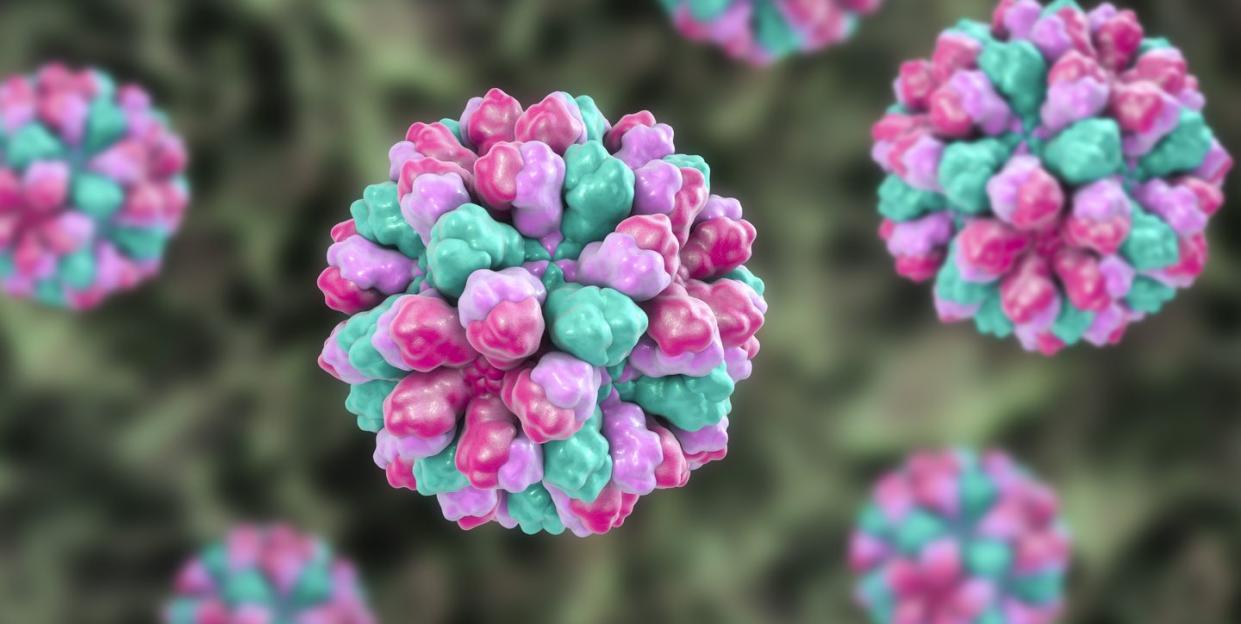Norovirus Is Spreading Again—Can You Get It Twice? Experts Weigh In

If you’ve lived through the intense experience that is norovirus, it’s understandable to never, ever want to go through that level of intense vomiting and diarrhea again. Cue searching online for, “Can you get norovirus twice?” to try to see what might be ahead.
Unfortunately, as with many viruses, norovirus has multiple strains. Which makes the possibility of getting it more than once real. Of course, the details are a little more complicated. Here’s what you need to know about whether you can get norovirus twice, and how it all works.
Can you get norovirus twice?
Yes, you can get norovirus twice. “People can get infected with norovirus countless times,” says infectious disease expert Amesh A. Adalja, M.D., a senior scholar at the Johns Hopkins Center for Health Security. “There are different strains that do not provide much cross-immunity.”
The good news: While you can get norovirus twice (and more than that, unfortunately), you’re not likely to get it as often as you would a cold. “There are many more genotypes and different agents for the common cold,” explains Thomas Russo, M.D., an infectious disease expert at the University of Buffalo in New York. “So, the risk of reinfection is much less for norovirus, where nearly everyone gets one or more colds per year.”
How quickly can you get norovirus a second time?
This is where things get a little tricky. Most studies show that you have immunity to that same strain of norovirus for six months to two years after you have the virus. But the key phrase there is the same strain.
Being infected with one strain of norovirus will offer little protection against infection from another strain, says William Schaffner, M.D., an infectious disease specialist and professor of medicine at the Vanderbilt University School of Medicine. “There are different strains of norovirus,” he says. “You could potentially get two episodes of norovirus fairly close together. I wouldn’t wish that on anybody.”
Still, “It is probably unlikely that one can get infected immediately after recovering,” Dr. Adalja says. But, he adds, “Over a period of weeks, that will fall and susceptibility will increase.”
How to prevent norovirus
Norovirus can be tough to avoid when it’s going around, but there are a few things you can do to lower your risk. The Centers for Disease Control and Prevention (CDC) recommends washing your hands well with soap and water for at least 20 seconds, especially after you use the bathroom, change a diaper, and before eating or prepping food.
If someone in your house has norovirus, the CDC says you’ll want to clean and disinfect any surfaces they may have come into contact with. If you need to do laundry for someone who has norovirus, wear gloves and wash your hands afterward, Dr. Schaffner says.
“It’s not in the official recommendations, but I would definitely consider wearing a mask because norovirus can have aerosol spread,” Dr. Russo says—especially if the person with norovirus is throwing up. But norovirus can be tough to avoid once it’s in your home. “It’s very, very contagious,” Dr. Schaffner says.
When to see a doctor
The good news about having norovirus—if there is any—is that it usually clears up between one and three days, per the CDC. But a big concern is developing dehydration, Dr. Schaffner says—and that’s particularly a risk with very young children, older people, and those who are immunocompromised.
“If you start out being somewhat frail, don’t hesitate to call your doctor about next steps,” Dr. Schaffner says. You should also call if you develop signs of dehydration—you’re peeing less than usual, have a dry mouth and dry throat, and feel dizzy when you stand up.
“Your doctor may want you to be seen in an ER and possibly be given some fluids,” Dr. Schaffner says.
If you just recovered from norovirus, you can feel relatively confident knowing that you’re unlikely to get it again right away. But it’s still a good idea to practice good hand hygiene and to steer clear of people who are obviously sick, just to be safe.
You Might Also Like

